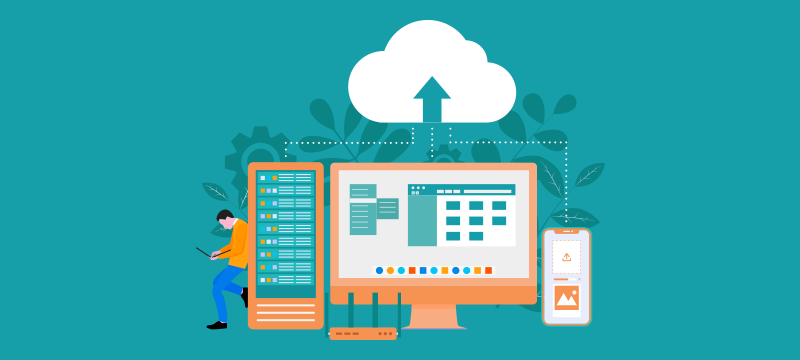If there’s one thing to remember, it’s that nothing lasts forever, especially if you don’t have a great strategy and backup in hand. If you are building a website using one of our recommended web hosting services, you’ll enjoy your website as well as the services. It will provide you with excellent uptime and reliability. However, a catastrophic server failure, a hacked website, or carelessly destroyed files are all possibilities. That’s something you don’t want to happen. You can restore your website to its previous condition, before calamity hits, using a backup.
When it comes to business, firms should make a point of regularly backing up their data as well as their website; after all, you don’t want to lose your most critical data, orders, or inventory data due to an accident.
Fortunately, creating a good backup is a simple task. It’s simply a case of deciding how you’ll do it and how frequently you’ll do it. You will be free and your data will be protected after you begin the backup process. You must also keep your data safe, such as on an external hard drive or in the cloud storage, and update it regularly. Here, we look at some of the importance of backups We explore the necessity of backups and provide guidelines for creating and preserving them.
Important Features of a Backup Solution
There are multiple choices for backing up your data in various locations. Here, we’ll go through the most important elements of a backup solution so you can implement best business practices.
- Daily Backups Since your data is continuously changing, you should always make a daily backup. It would be a fantastic idea if you kept automatic updates on your website because we cannot backup manually in our everyday life. If you have online customers, they can place new orders, update payment information, and make account adjustments at any time. All those changes will be gone if you lose your data and have to restore it from a backup that is months old.
To avoid this, you’ll need a daily-updated backup solution. At bodHOST, we offer excellent hosting services that feature free daily backups. Users can choose from one of our Offsite Remote Backup solutions, which provide continuous data security with high-frequency, automatic, and scheduled backups.
-
Remote Backup One of the most crucial aspects of backup is that you should be kept apart from the data you’ve backed up. If you backup your data on the same machine every day, there’s a chance you’ll lose the original data if something goes wrong. Your data must be backed up remotely, not merely on another server or machine, but in a distant location. You’ll lose the backup if your website folders are hacked, infected, mistakenly deleted, or lost due to hardware failure. This can be avoided by storing your backups remotely, on a different server or workstation, and in a different geographical region.
- Backup Storage
Companies are collecting more data and storing it for longer as it becomes more valuable. As a result, backup files are becoming larger and bigger. While you can store backups almost anywhere, including on your computer and through services like Google Drive, Dropbox, and OneDrive, there’s a chance you’ll run out of room for newer backups – especially if you save several copies of earlier versions.
Also Read: Everything You Need to Know About Website Backups
Regardless of how large or little your backups are, you must ensure that there is enough capacity to save them. The cloud is the ideal option for those with a lot of data because it allows you to scale up storage on demand.
- Backup Authenticity and protection The backup must be secure against hackers, and you must verify that data was not corrupted throughout the backup process. Many firms have stored backups on tapes or portable drives in the past to avoid hacking, but this might raise the risk of data corruption. At bodHOST, we use an advanced tech that encrypts backups, tests them for integrity, and stores them on servers that are physically separate from your web server. This way, you can rest certain that your important data is safe and that your backup will work if you ever need to restore it.
- Fast Restoration
Fast data storage is essential, and if you lose your data, it will take less time to recover, as it will have a minor impact on your organization. If you’ve kept your backups on portable drives or in third-party cloud services like Google Drive, you’ll need to account for this. When it comes to gaining access to them, Copy them to your laptop and upload them to your web server via the internet. The speed of your computer’s hard drive and an internet connection can alter the time.
If the files are stored with your service provider, you will have immediate access to them through your user account and will be able to swiftly and easily move them to your web server, speeding up the recovery process. Furthermore, if you require assistance with restoration, you will have access to 24/7 technical support at bodHOST.
Conclusion
With several ways to lose data and such serious implications if you do, a backup solution is a must-have insurance policy. At bodHOST, we offer daily remote backups with several of our hosting services, while our automatic scheduled backup plans give ongoing business protection for clients who want more frequent backups. We also allow you to make your website backups and save them elsewhere using cPanel if you choose. To our knowledge base, you’ll discover backup instructions for this procedure.
Visit our Offsite Remote Backups page for more information on our automated backups with continuous business protection.
